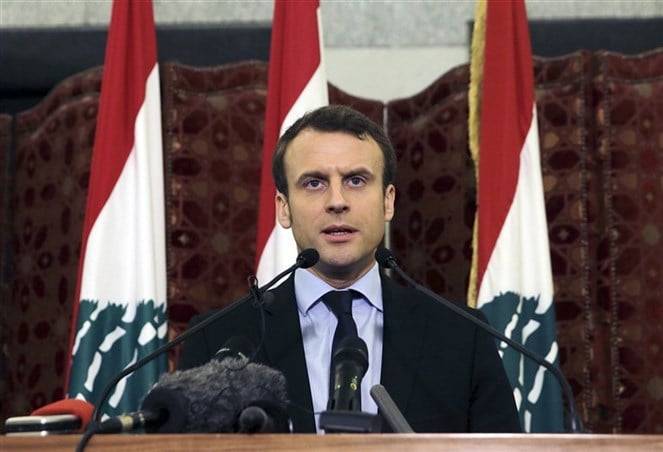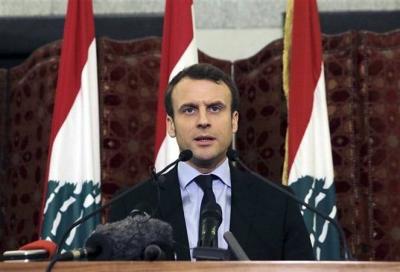Lebanese politicians acted as if they were unaffected by the statements made by French President Emmanuel Macron during his return from the Jordanian capital, Amman, where he participated in the "Baghdad 2" conference. Macron harshly criticized Lebanon's leaders, calling for "the necessity to change the leaders of this country and remove those who obstruct reforms." Silence was their only "response" to these statements. Macron's remarks, reported by media outlets, are considered the harshest that the French president has directed at the Lebanese political class. He had visited Beirut twice, the first time after the Beirut port explosion in August 2020 and the second time a month later when he gathered Lebanese leaders around a round table at the French embassy, urging them to agree on a political formula to form a new government and pave the way for resolving the worsening economic crisis.
In his discussions with several media outlets, the French president expressed that he wants to "help create an alternative political solution (...) without any leniency towards political forces," urging not to concede anything to those who have enriched themselves in recent years and want to stay in power while exercising extortion. He stated that what is required afterward is the "restructuring of the financial system and establishing a plan with an honest president and an honest prime minister and a team to implement it that enjoys public support."
The French president stated, "What matters to me are the Lebanese people, as the political class that lives at the expense of the country lacks the courage to change," expressing his dissatisfaction with "the behavior of this class," and his doubts about "the capacity of the Lebanese people to push for change." He therefore wants "to contribute to finding an alternative political solution through establishing concrete projects, while not showing leniency towards the political class." Macron's statements came as Lebanon grapples with a constitutional crisis due to the failure to elect a president and the ongoing dispute surrounding the powers of caretaker Prime Minister Najib Mikati and what is constitutionally permitted during the presidential vacuum.
In response to Macron's comments, Bilal Abdullah, a member of the "Democratic Gathering," emphasized in a statement to "Asharq Al-Awsat" that “changing leadership and the political system in Lebanon is a sovereign matter that falls under the will of the Lebanese people who alone decide who their leaders are, and choose and hold accountable according to the mechanisms provided by our democratic system, while we respect President Macron and affirm his love and concern for the country.” For his part, Ghassan Hasbani, a member of the "Strong Republic" bloc, posed a series of questions in response to Macron's remarks, while stating his complete support: "Who is actually obstructing reforms, especially the failure to proceed with an agreement with the IMF on the bank restructuring law for three years? Who is hindering customs collection? Who is obstructing electricity sector reforms by rejecting the establishment of a regulatory authority? Who is systematically destroying the telecommunications sector?" Hasbani pointed out in a statement to "Asharq Al-Awsat" that “those who obstruct the election of a president by disrupting the quorum for sessions are known, as are those who impede reforms while being in the executive authority for years and prevent foreign and Arab aid.” He stressed that the solution to the Lebanese crisis lies in “electing a reformist president and changing the executive leadership to be capable of implementing an agreement with the IMF that leads to the necessary recovery and revival, which is achieved through implementing the laws that will be adopted by the Parliament as part of the recovery plan.”
Macron also addressed the issue of electing a president, and in response to a question about General Joseph Aoun, the commander of the Lebanese army who is considered one of the names proposed for the presidency, the French president said, "France will not get involved in the name game, as it has intervened many times in the past and failed. Lebanon needs an honest president and prime minister.” He confirmed that he wants "to assist Prime Minister Najib Mikati, who is making efforts despite everything to do what he can and not concede to those who have enriched themselves and want to stay and engage in extortion."




